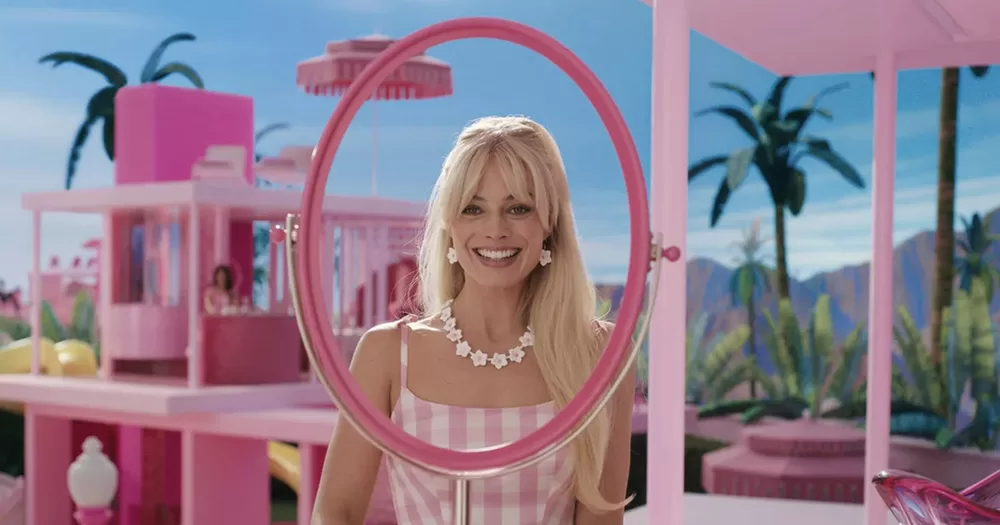The billion-dollar blockbuster Barbie is due to be banned in Lebanon, which has previously been thought of as one of the most liberal countries in the Middle East. While the movie has been widely praised in many parts of the world for its feminist themes, it has come under fire in other countries like Lebanon and Kuwait, with the latter already deciding to go ahead with the ban.
On Wednesday, August 9, Culture Minister of Lebanon Mohammad Mortada moved to ban Barbie from being shown in Lebanese cinemas. In a statement, he claimed the movie was found to “promote homosexuality and sexual transformation” and that it “contradicts values of faith and morality” by diminishing the importance of the family unit.
He went on to say, “The film goes against moral and religious values in Lebanon, as it encourages perversity and gender transformation” and “supports rejecting a father’s guardianship, undermines and ridicules the role of the mother, and questions the necessity of marriage and having a family”.
He then asked Lebanon’s general security agency, which is traditionally responsible for censorship decisions, to take all steps necessary to prevent the movie from being shown. According to Reuters, the general security agency was asked by Lebanon’s Interior Minister Bassan Mawlawi to review the film after Mortada’s request, and it is now expected to be banned.
In the past year, Malawi has also banned all events that are, in his eyes, “promoting sexual perversion”, which is understood to mean LGBTQ+-friendly gatherings. He is backed by the armed Shi’ite group Hezbollah, whose Chief Sayyed Hassan Nasrallah has said in the past that homosexuality is an “imminent danger” to the country and needs to be “confronted”. Nasrallah also stated that people that have engaged in homosexual acts should be “killed”.
Lebanon traditionally used to be regarded as among the more liberal countries in the region regarding LGBTQ+ issues. It was also the first Arab country to hold a Pride Week in 2017. However, in recent times, the topic has come into sharper focus, causing tension.
According to Ayman Mhanna, Executive Director of the non-profit civic Samir Kassir Foundation, Mortada’s move avoided the customary censorship process in Lebanon.
“This is part of a broader campaign that is bringing together Hezbollah, the Christian far right, and other top religious leaders in a focused campaign against LGBT people,” Mhanna said.
In Lebanon, where domestic violence and rape go unpunished, where women are subjugated to unfair laws,& all sorts of criminals roam freely ; a bunch of men want to ban Barbie the movie ( which they have not watched ) because they believe it goes against social &religious morals
— Dalal Mawadدلال معوض (@dalalmawad) August 9, 2023
In many conservative countries, movies which feature or talk about sex, homosexuality and/or religious issues are routinely edited to comply with censorship rules. If a studio is not willing to make changes to the final cut, the film in question can be banned from playing in cinemas.
This is why Barbie’s release date, which was initially supposed to be on July 19, was pushed back to the end of August as the review of “LGBTQ+ material” delayed the process.
While the movie has come under review in Lebanon, Kuwait has already established a ban on the Barbie film in a bid to protect “public ethics and social traditions”.
A spokesman for the Kuwaiti Ministry of Information claimed that the movie “promulgates ideas and beliefs that are alien to Kuwaiti society and public order”.
Just shortly before, the ministry also banned the Australian horror movie Talk to Me because it features a transgender actor.
Barbie‘s release has also been delayed in Pakistan’s Punjab province citing “objectionable content” as the reason. In Vietnam, the movie was banned over a scene where a world map is allegedly showing China’s claims in the disputed South China Sea. In the Philippines, the same scene came under critique, but the movie was still released provided the part of the map in question was blurred.
© 2023 GCN (Gay Community News). All rights reserved.
Support GCN
GCN is a free, vital resource for Ireland’s LGBTQ+ community since 1988.
GCN is a trading name of National LGBT Federation CLG, a registered charity - Charity Number: 20034580.
GCN relies on the generous support of the community and allies to sustain the crucial work that we do. Producing GCN is costly, and, in an industry which has been hugely impacted by rising costs, we need your support to help sustain and grow this vital resource.
Supporting GCN for as little as €1.99 per month will help us continue our work as Ireland’s free, independent LGBTQ+ media.
